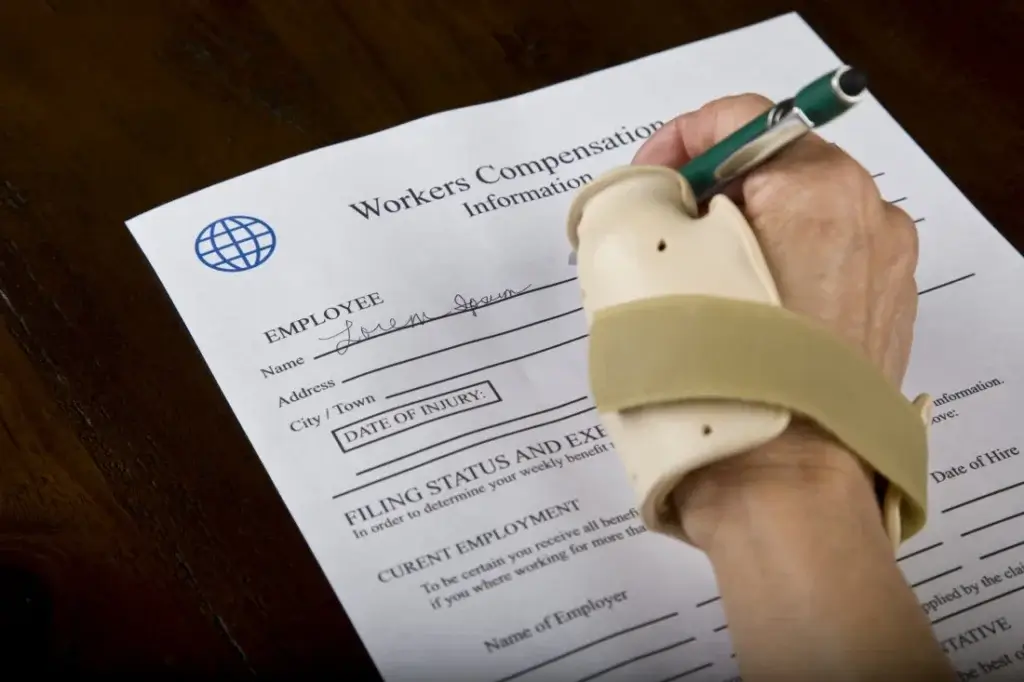You can’t avoid the inevitable accident at work. In most cases, workers’ compensation will cover your medical bills. But what happens if you’re injured outside of work? Will you have any coverage, or will your lost wages go unpaid?
Workers’ comp happens when an employee experiences an injury or illness that directly results from their employment. Typically, that injury happens where that employee works.
But if you’re on a job assignment in a different location, you may still receive workers’ compensation. That’s because the injury falls within the range of your job description and duties. If you’re off the clock, however, things get trickier. There are some situations where you may still qualify for compensation, but the rules vary. Read on to see what your options include if you experience an injury outside of work.
Does Your Injury Outside of Work Fall Under the Course and Scope Rule?
For an injury or illness to qualify for workers’ comp, it must take place within the parameters of your employment. In other words, were you hurt at work and were you doing your job at the time? Sounds easy to determine, right?
Unfortunately, life isn’t always that straightforward and that’s one of the reasons that workers’ comp cases come into play. It’s also why there is something called the course and scope rule.
The course and scope rule means an employee should receive coverage when injured while furthering their employer’s business. This is true whether it was on the premises of their job or not.

It may still be legitimate if someone is on an official work break slightly beyond their scope of duties. For example, an employee steps outside to make a personal phone call but slips and falls before re-entering the building. That may still qualify since it was during business hours and at their place of employment.
But there are times when a similar situation might not qualify for coverage. Like if an employee comes into work over the weekend of their own volition and then sustains an injury. Their employer might deny the claim saying they never asked them to be there.
As you can see, there are some gray areas when it comes to determining coverage. This is why it’s always important to consult with a workers’ comp attorney if your employer is questioning your claim.
When Am I Covered by Workers’ Compensation if I’m Injured Outside of Work?
When are you potentially eligible for workers’ comp coverage outside of work? Though the rules vary from state to state, let’s look at a few common scenarios. This may help you discern if your claim satisfies the criteria, though a lawyer will be able to better advise.
Company Events
Let’s say your employer hosts a big company picnic, BBQ, game day, corporate off-site, or something similar. If you participate in that event and are injured outside of work, then you may qualify for workers’ compensation. This is especially true if it’s a requirement that you attend, whether for group bonding or corporate advancement.
If this event benefits you professionally in some way, then it falls within the scope of your employment duties. Even if it occurs away from your place of work.
However, this does vary by state, and may get murky if attendance isn’t mandatory. If the event is just something set up to promote employee goodwill, an employer may contest your workers’ comp claim.
Out-of-Town Travel
If your employer sends you out of town on a work trip, then this generally qualifies under the course and scope rules. That’s because even if you’re away from the office, you’re traveling to fulfill work-related duties.
So, if you sustain an injury while on the road for your job, you’ll likely be able to claim. Even if the injury happens at your hotel or in a company car. There are caveats, of course, but in most cases this counts.

Regular Workday Travel
General travel to-and-from work is not going to fall under the jurisdiction of workers’ comp. That’s because of the Coming and Going Rule which places this type of commuting outside of the course of regular employment duties.
However, if an employee is on a special work errand during the day and sustains injury, then that might qualify. This “special employer request” counts as being within the scope of the employee’s work duties.
Also, people who must travel in order to fulfill their job duties fall under different criteria. For example, a delivery person will be able to claim workers’ comp if they’re in an accident while driving as part of their work.
Injured on Company Property
If you’re on company property but not clocked in yet, coverage is possible.
An example of this is if an injury occurs in the employer’s parking lot on the way into work. Like if an employee twists their ankle because of a large unrepaired pothole in the asphalt. Because the employee must be there to get to their job then they can reasonably expect coverage.
Workers’ compensation insurance usually provides benefits to employees sustaining injuries in areas maintained by their employer outside of the workplace.
However, this may not apply to your claim if a totally different entity owns the parking lot. So once again, there are frequently gray areas in off-property claims.
Work from Home
Because so many employees now find themselves in work from home (WFH) scenarios, this question comes up a lot. Though technically on your own property, if you’re injured outside of work but working remotely, then you may still potentially file a claim.

Workers’ comp insurance typically covers any injury that arises during the course of employment. So, an injury that happens while an employee is doing work-related activities at home during work hours may be valid.
This one can be tougher to prove since it’s based on an employee’s word. But since one-third of employees who can work remotely now do so, it’s coming up more often. As a result, courts are also starting to take WFH workers’ comp claims more seriously.
What if My Injury Happens Outside of the Course and Scope of My Employment?
What happens if you are at work, but your injury is a result of something unrelated to your employment? In this case, you may not have a legitimate workers’ comp claim even if you were on your employer’s property.
For example, if the injury is the result of horseplay at work, you’re responsible for the resulting injuries.

The only caveat in that case is if you are a victim of the antics of other employees at work. If you were doing your job and the unrestrained employees are the reason for your injury, then coverage is viable.
Situations like this may also come up when there is fighting at work. If the reason for the fight is personal, then a workers’ comp claim isn’t valid. But if a fight breaks out over a matter related to work, there could be support for a claim.
The answer always circles back to if the injury happens within the course and scope of an employee’s work duties. However, a skilled workers’ comp attorney can help you weed through your options in cases where a claim is unclear.
What to Do if You’re Injured Outside of Work
Injured outside of work and think it may qualify for workers’ comp? If so, then you should take the following steps:
- Call 911 if you need immediate medical help.
- If it’s not an emergency, see a doctor as soon as possible. You’ll need an official assessment and record of your injury.
- Keep records and document everything. That means photos of the property and hazards, as well as witness information, dates, similar incidents, etc.
- Notify your employer of your injury, your prognosis and your estimated recovery.
- File a workers’ comp claim.
- Contact a workers’ comp lawyer to help guide you through the process.

If you’re injured outside of work and cannot qualify for workers’ comp benefits, you may have other options. Of course, always call 911 first if it’s an emergency and seek any necessary medical attention.
After that, if unable to work you may wish to investigate other programs that can help while you recover. You may be eligible to apply for short or long-term disability and/or Family Medical Leave (FML).
Speak to your employer as well to see if they’ll let you use sick time or PTO. Some companies may even offer alternate duties while you get better.
Can I Lose My Job Due to An Injury?
Though it seems incredibly uncompassionate, yes, it’s possible to lose your job if your injury prevents you from working. But only in at-will work states where an employer has the right to terminate employment relationships without cause or notice.
Also, this is only in cases where your injury happens outside of work. If it’s a valid workers’ comp claim, then letting you go because of an injury is retaliatory and not allowable.
On a positive note, if you lose your job due to an off-the-job injury, you may qualify for unemployment benefits. Another option is pursuing compensation in a civil lawsuit if there is a non-employer party responsible for your injury.
Find an Attorney to Fight for Your Worker Rights If You’re Injured Outside of Work
Overall, every workers’ comp claim has unique attributes that require reviews on a case-by-case basis. It can get especially confusing if an injury occurs away from the place of employment. Sometimes it may fall within the parameters of an employee’s course and scope of employment, but sometimes, it won’t.
If you’re injured outside of work but feel you deserve workers’ comp benefits, speak to an attorney for free. The best thing you can do is get someone in your corner who understands all the legal loopholes.
We’d love to set you up with a free consultation with one of the qualified attorneys in our network today. Click the button below to start your free online benefits quiz and see if you may qualify:
Get Your Free Benefits Evaluation
Kimberly Dawn Neumann is a multi-published NYC-based magazine and book writer whose work has appeared in a wide variety of publications ranging from Forbes toCosmopolitan. She graduated summa cum laude from the University of Maryland, College of Journalism. For more, visit:www.KDNeumann.com, Instagram @dancerscribe, and Twitter/X @KimberlyNeumann.

